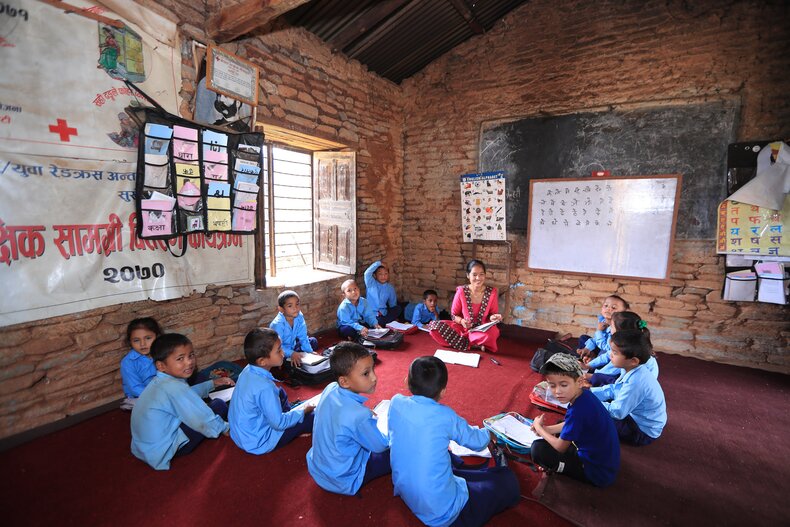

Did you know? Half of the people on our planet are 30 years old or younger, and this percentage is expected to reach 57% by the end of 2030. This demographic shift represents a tremendous opportunity for global development.
According to the United Nations, a survey revealed that 67% of young people believe in a better future, with 15 to 17-year-olds being the most optimistic. This statistic highlights the critical role that youth will play in shaping the world of tomorrow.
As such, we must invest in the younger generation, not only economically but also by fostering moral values and providing quality education. By doing so, we can pave the way for a more united, peaceful, and thriving society.

There is a growing consensus that the age balance in politics is skewed, with many believing that younger voices are underrepresented. In fact, over two-thirds (69%) of people across all age groups agree that offering more opportunities for young people to influence policy development would improve political systems.
While concerns about the lack of experience among younger politicians are valid, it is essential to recognize the unique contributions that youth can bring to the political arena.
Young people tend to have bold opinions and are more open to change, qualities that can drive progress. However, the current global situation shows that only 2.6% of parliamentarians are under 30 years old, and less than 1% of these young MPs are women.
"Youth demands change. Yet, we have to find a balance between experience and the young energy, that’s the key!" underlines Ann Kathrin Linsenhoff.

Youth plays a pivotal role in global management, particularly in the digital age.
According to the UN, young people are at the forefront of digital adoption and innovation, with three-quarters of those aged 15 to 24 using the internet in 2022 — a rate higher than that of any other age group.
Often referred to as "digital natives," young people are leveraging technology to drive change and develop solutions to global challenges.
Their digital knowledge allows for a quicker and more comprehensive understanding of global issues, making them indispensable in today’s fast-paced world.

Despite their potential, significant disparities persist, especially in low-income countries and among young women, who often have less access to the internet and digital skills than their male counterparts.
"There is an urgent need to enhance digital inclusion," emphasizes Ann Kathrin Linsenhoff.
The UN identifies digital transformation as one of the six key transitions with "catalytic and multiplier effects across the SDGs" (Sustainable Development Goals).
Digital technologies, including mobile devices, digital platforms, and emerging innovations like artificial intelligence, are crucial in advancing these goals. Data generated from digital interactions is fundamental to this transformation, enabling evidence-based decision-making.
It is estimated that digital technologies and data contribute to at least 70% of the SDG targets, significantly impacting economic, social, and environmental dimensions.

However, digitalization is not the only challenge faced by youth today. Young people are increasingly calling for more just, equitable, and progressive opportunities in their societies.
The need to address the multifaceted challenges they face, such as access to education, healthcare, employment, and gender equality, has become more urgent than ever.
When provided with the necessary knowledge and opportunities, youth can be a powerful force for development.
Young people must acquire the education and skills needed to contribute effectively to the economy and gain access to a job market that can absorb them into the workforce.

Youth is undeniably the engine of our future society. As the world becomes increasingly young, the importance of investing in the next generation cannot be overstated.
By empowering young people with the education, skills, and opportunities they need to succeed, we can create a more just, equitable, and prosperous world.
“The future is in their hands, and by supporting them today, we can ensure a better tomorrow for all,” says Ann Kathrin Linsenhoff.
Yours
sincerely

